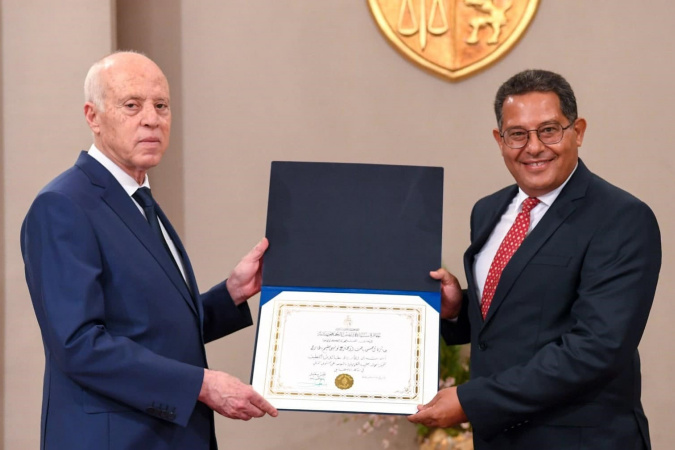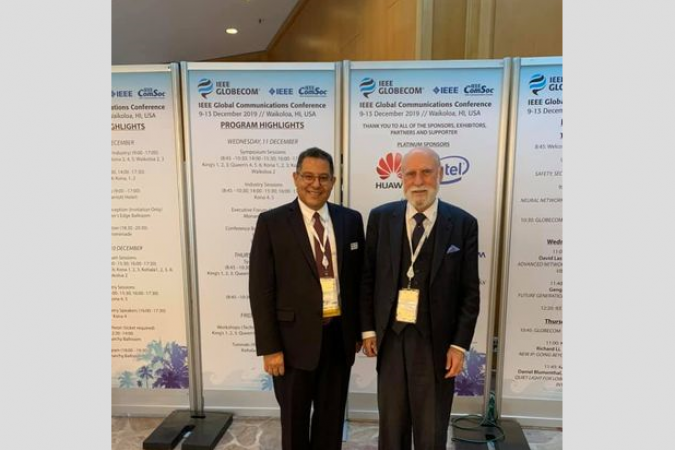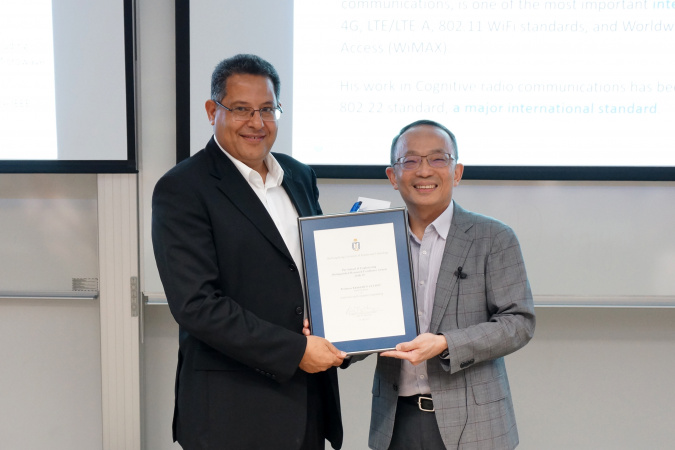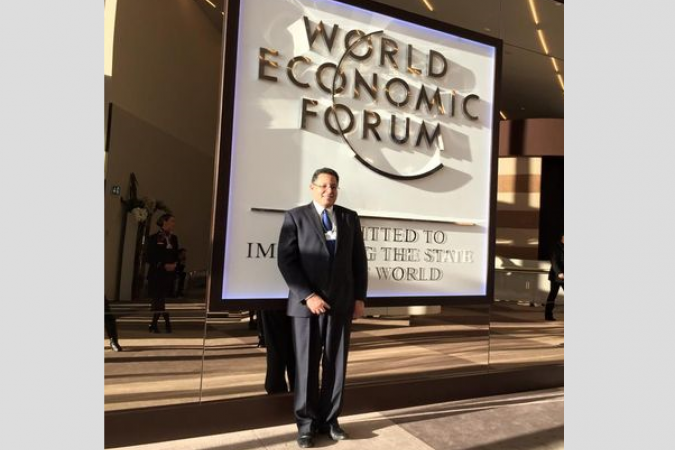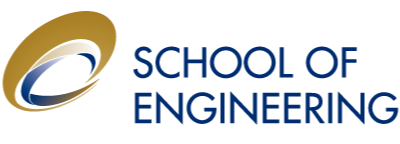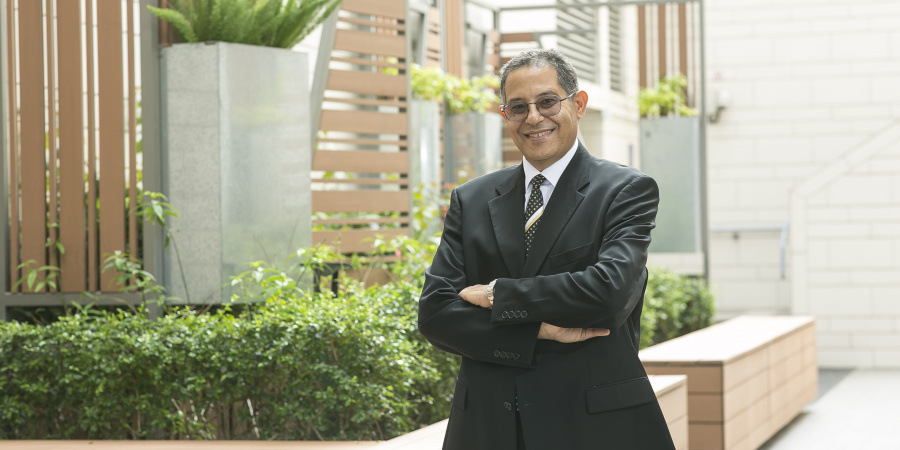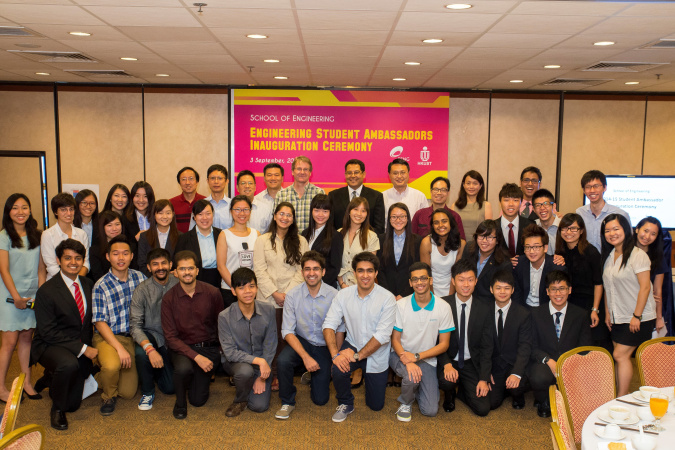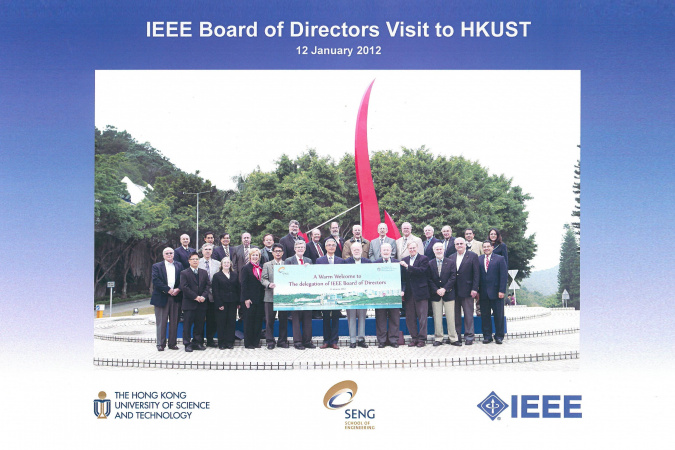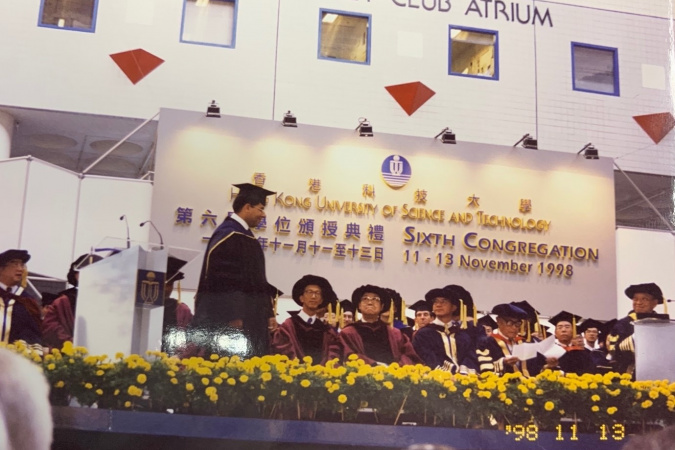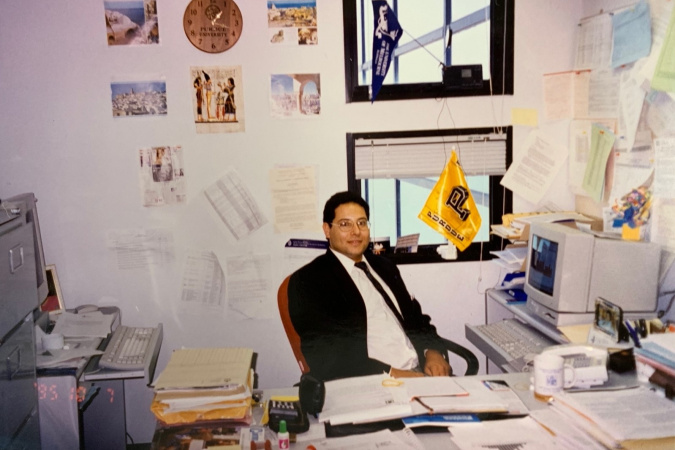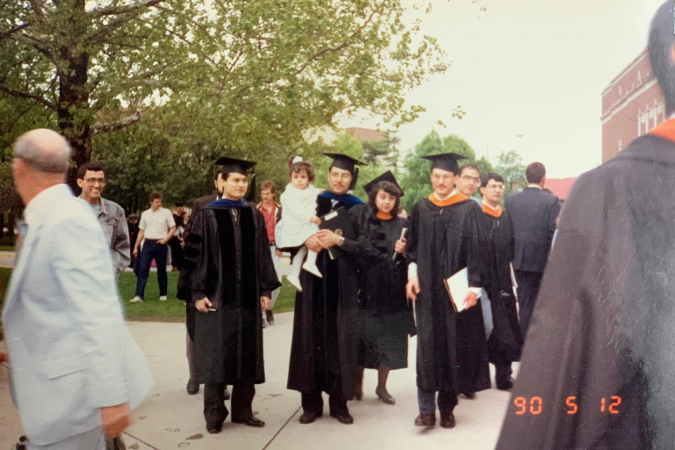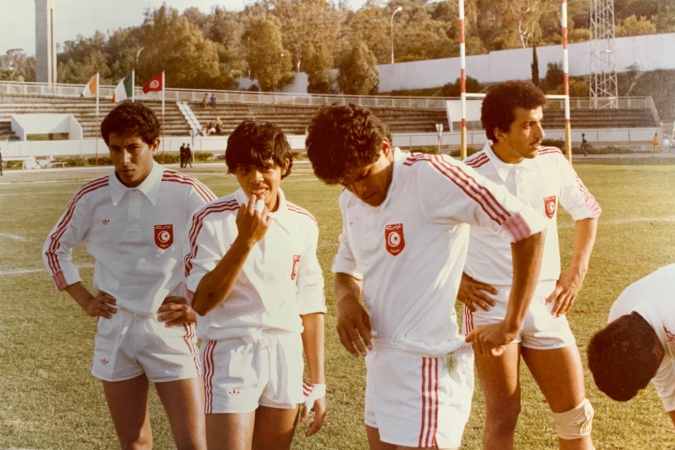Prof. Khaled B. LETAIEF Shares the Joy of His High-Achieving Career
It was 3am in the morning when Prof. Khaled B. LETAIEF received, out of the blue, an email from the US National Academy of Engineering (NAE) notifying him about his election to the academy. This is among the highest professional distinctions accorded to an engineer.
The New Bright Professor of Engineering and Chair Professor in the Department of Electronic and Computer Engineering (ECE), cum former Dean of Engineering remained thrilled when recalling the magic moment, “Wow, I cannot believe it. Oh my God! It is like a dream coming true. It is one of the greatest honors of my life.” The professor, with numerous awards and recognitions already, is extremely excited by the NAE election in February 2021 as it involves keen competition and recognizes not only scholarly contributions, but also awardees’ professional contributions and pioneering discoveries in technology.
Congratulatory messages came from all over the world, ranging from greetings from friends and colleagues to a virtual party attended by over 100 top international scholars. Among them was Leonard Kleinrock, one of the fathers of the internet.
Earlier in August 2020 the Tunisian-born and Purdue-educated engineer, currently the world’s sixth most quoted scholar in wireless communications, appeared on national live broadcast on Tunisia’s National Science Day as he was presented the Best Tunisian Researcher Abroad accolade by the Tunisian President. There is only one recipient each year based on rigorous review by a national committee.
Setting off from Tunisia to the world
Brought up in Tunisia’s French-inspired education system that was highly competitive, Prof. Letaief had always loved science and particularly mathematics. With excellent scores in the public examination in 1981, he was among the top 200 high school graduates given full scholarships by the Tunisian government for undergraduate studies in the US. These elite teenagers only started to learn English that very summer in Tunisia before flying over to North America in autumn for one semester of English studies. Prof. Letaief was sent to a specialized center for English studies in Michigan State University accordingly. In spring 1982, the young Letaief started studying in Purdue’s prestigious program in electrical engineering. Having first-year courses exempted because he had acquired the knowledge already in his high school, he completed with distinction the four-year program within three years. He then went on to do master’s and PhD at Purdue, also in electrical engineering, again with full scholarships from his home country.
“I was inspired by Purdue’s professors to become a scholar doing impactful research for humanity and providing solutions to the world,” he said. Getting his degrees there was instrumental in equipping him with the right tools to conduct advanced and cutting-edge research. Besides the rigor of education training, what he values most about studying at Purdue is learning from the faculty about research integrity such as honesty, objectivity, and openness.
Upon completion of PhD studies in 1990, he became an assistant professor at the University of Melbourne in Australia before being recruited to HKUST in 1993. He was attracted to the young university in Hong Kong because of HKUST’s vision to become Asia’s MIT, and the established professors to be hired. Big names included Justin Chuang, who has been well-known in the wireless communications field, and K. C. Smith, a microelectronics expert who authored a widely-used engineering textbook. “It all sounded very exciting,” stated Prof. Letaief.
The decision is now proved to be most intelligent. “I might not be able to achieve what I have achieved had I been somewhere else other than HKUST,” he said. He was given the Michael G. Gale Medal for Distinguished Teaching as early as 1998, the highest University-wide teaching award with only one recipient every year. His research career has progressed extremely well in HKUST’s excellent environment, leading to the 2019 Distinguished Research Excellence Award by the School of Engineering. He has also taken up management roles ranging from the Dean of Engineering, Head of the ECE Department, Director of the Wireless IC System Design Center, Founding Director of Huawei Innovation Laboratory, and Director of the Hong Kong Telecom Institute of Information Technology.
He has also been elected 2020 Fellow of the Hong Kong Academy of Engineering Sciences (HKAES). He feels blessed and special for being recognized for his contributions to Hong Kong, which played a significant role in his career and provides a favorable environment as well as resources for academics to thrive.
Advocating teacher-scholar philosophy
Contrary to some people’s belief that one can hardly be good at both research and teaching, Prof. Letaief believes the two go hand in hand. “You need to be excellent in both education and research. You can’t just say, ‘I’m a good teacher; or I’m an excellent researcher, but I don’t care about the students’. As the Dean, I advocated this teacher-scholar philosophy and launched the Center for Engineering Education Innovation. People trust me because I do it by example.”
Dedicated to research, he continued with research pursuits when working as the Dean. So how does he manage to excel in education, research, and management? “When I joined HKUST, the University was starting from scratch with few senior faculty members. As assistant professors, we were entrusted to assume leadership roles. I soon became the department’s director of undergraduate studies while I was also in charge of laboratories from design to buying equipment. Because of the early training, things came naturally.”
During his office as the Dean between 2009 and 2015, the Engineering School’s world ranking rose from 26th to 14th. The new curriculum for 334 was launched, along with new institutes, centers, departments, and programs. Prior to that, he was the Head of the ECE Department (2003-09), which has been one of HKUST’s biggest departments with around 60 faculty members at that time.
Out of the three roles, he enjoys teaching and interacting with postgraduate students most. “I love training the next generation and helping them to excel. When publishing papers, I put students’ names first and give them credit. I hope they will become more famous than myself. I treat them like colleagues – they work with me, not for me. This was how my Purdue professors treated us then,” said the professor with a reputation for being nice and good to work with. “Moreover, professors’ research is often channeled via students. Their training is part of our research deliverables.” He feels lucky that over the years he has been able to attract a good number of students to work together to generate useful solutions. This becomes positive feedback that enables the team to attract even better students and produce fruitful research output.
Pioneer in wireless communications
He accounts for his research success in his usual humble manner. “I am lucky to work in a field that makes impact and that is appreciated. Wireless communications did not exist when I went to university. There were challenges as well as potentials for groundbreaking inventions in the open field. We chose to solve difficult problems that were considered impossible by some. When one finds the solution, it becomes impactful. It opens a new field, and people start citing your papers.”
Prof. Letaief is the world’s sixth most cited scholar in wireless communications, with an h-index of 87. He is also recognized among the top 30 worldwide list of AI 2000 Most Influential Scholars, which lists the most cited scholars from the top-tier publications on internet of things (IoT) over the 2009-2019 period.
“You need to have a vision before doing anything,” he said. He and his teammates are excited to have published the paper “The Roadmap to 6G: AI Empowered Wireless Networks”, which he believes is the world’s first paper on the vision for 6G. It envisages the “why” and “what” behind 6G, its KPIs, requirements and potentials.
“From 2G to 5G, it is like the transformation from a bike, car, high-speed train to a plane – it is mainly about increasing transmission speed. For 6G however, it is not only about speed. It differs substantially from the previous generations as it is going to be AI empowered – maybe like a rocket. As there are now big data everywhere and a huge amount of IoT devices around us, the system has become too big for human-operated machines to handle. We need AI to optimize the system, without human intervention, to allocate resources, handle massive connectivity, and reduce latency. Replacing human-operated machines, the AI-empowered system has intelligent machines with neural networks that mimic how human brains work to make decisions itself.”
Prof. Letaief explains that 6G’s increased scalability, higher bandwidth and frequencies enable new practices such as remote surgery. For example, when a doctor cuts a vein on a computer in Hong Kong, a robot in New York would do the same to a physical person.
He foresees that 6G will represent a revolutionary paradigm shift to support ubiquitous AI services and internet of everything (IoE) applications, including sustainable cities, augmented, mixed and virtual reality, connected autonomous systems, brain-computer interfaces, immersive gaming, autonomous transportation, e-health, and other areas. It will result in a wireless evolution from “connected things” to “connected intelligence” to enable interconnectivity among humans, things, and intelligence within a deeply intertwined cyber-physical world. The 6G standard is expected to be completed as early as 2028, while mass commercialization may occur around 2030.
Contributing to engineering profession
Committed to the profession, Prof. Letaief has joined the Institute of Electrical and Electronics Engineers (IEEE) for over 30 years since his days at Purdue and has the privilege to serve in different capacities. He believes that professional activities represent an essential part of a scholar’s career as such activities not only help them to be competent in their research and education, but also help them to excel. In 2002, he was elected to be founding editor-in-chief of the IEEE Transactions on Wireless Communications to create the journal from scratch with a team of 100 editors. This was one of his most rewarding experiences as he was entrusted to the role as a rising faculty. The journal is now one of the most prestigious with an impact factor of 6.779 in 2020.
As the President of the IEEE Communications Society in his two-year term from 2018 to 2019, he turned deficit into multi-million surplus by identifying new revenue sources, improving operational efficiencies, and reducing costs while finding solutions to deliver products and services to members at stable costs. Putting much emphasis on nurturing the younger generation, he introduced US$1 student membership fees and started many activities that allowed students to network with eminent leaders of the field. These helped to increase student membership significantly by over 60% at the end of his term. Under his presidency, the society redoubled its efforts in promoting technological innovation and creating new areas, as well as in extending its global reach and ethnic and gender diversity.
Among his many achievements, he is proud of his contributions to advance the analysis, design, and performance evaluation of OFDM for wireless communication systems. Specifically, he extensively studied the use of OFDM for high-speed wireless data access and developed enabling techniques for OFDM that included robust channel estimation, synchronization, and space-time processing. In addition, he created novel and groundbreaking adaptive and resource allocation schemes, which became a key technology in many wireless systems and has been vital in accelerating the explosive growth of broadband wireless communications with profound impact on sustainable smart cities, IoT, and many other areas.
He is also humbled by the NAE election, and to have 18 IEEE Best Paper Awards that involve rigorous competition. His election to IEEE Fellow, with the number for any single year not exceeding 0.1% of the voting membership, is the highest honor in his field.
There is a way
As an optimist with strong passions, he has demonstrated by actions his motto “Where there’s a will, there’s a way.”
“You need to have a vision, but the most important thing is the execution. A vision without execution is only a dream. I love challenges and try to set ambitious goals,” he says. Often considered a visionary with superb execution power and management skills, he accomplishes “impossible missions” and succeeds in motivating, leading, attracting, and working with talents.
To adolescents who want to pursue science and research, Prof. Letaief says, “If you wish to help solve grand challenges facing humanities such as sustainability, health, security, and energy, you should pursue science and research. It will not only bring you lots of fun and personal satisfaction, but also allow you to make a difference by advancing technology for humanity.”
Related link:
- SENG news (Feb 17, 2021): Prof. Khaled B. LETAIEF Elected to US National Academy of Engineering
- SENG news (Jan 12, 2021): Dean of Engineering and Chair Professors Elected Fellows of Hong Kong Academy of Engineering Sciences
- SENG news (Sept 15, 2020): Prof. Khaled B. LETAIEF Named by Tunisian Government as Best Tunisian Researcher Living Abroad
